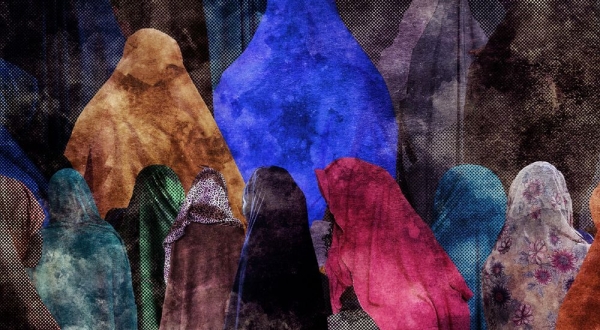A report by Human Right Organisation, Amnesty International has revealed the ordeal of girl survivors of Boko Haram captivity, among whom were underaged forced into marriage with their captors and others raped.
The investigative report, titled, ‘Help us build our lives’: Girl survivors of Boko Haram and military abuses in north-east Nigeria’ released on Monday by the group captured the travails of the girls having survived trafficking and crimes against humanity by Boko Haram.
The report, based on 126 interviews, including 82 with survivors, conducted in-person in North East Nigeria and remotely between 2019 and 2024 unravelled how the litany of war crimes stole the childhood of the girls, many of them now young women.
The organisation, quoting the survivors and identifying them by their initials revealed: “At least eight girls witnessed Boko Haram kill their relatives. CA*, who was abducted aged around 13 in 2014, said: “One day, Boko Haram… came into our house.
“They told our father we’re non-believers. They shot my father in the back of his head and the bullet came through his eyes. We started crying. They said if we don’t keep quiet, they will kill my mother too.”
“Once abducted, most girls were then forcibly married. Child and forced marriage are common practices by Boko Haram, who generally consider girls to be “of age” to marry from early adolescence, or even before.
“Girls were used in a multitude of ways as “wives”, including being made to serve their “husbands” in sexual slavery and domestic servitude. At least 33 survivors of forced marriage told Amnesty International that their “husbands” raped them.
“HA* was a teenager when she “agreed” to be married to save her father from being killed. She told Amnesty International she was beaten when she refused her “husband”, and that he frequently raped her.
The organisation noted that all those abducted were threatened into living under strict rules with severely limited freedom of movement as any real or perceived breaches of these rules were met with physical punishment and, at times, prolonged periods of imprisonment.
“Boko Haram meted out punishments publicly to instil fear and exert control. At least 31 girls interviewed were forced to watch forms of punishment that included lashings, amputations and beheadings.”
“GH, now in her early 20s, spent around a decade in captivity. She was often forced to watch violent punishments and said: “Sometimes I dream about the corpses that I saw or the stoning of the women that I saw. Once I open my eyes, I can’t go back to sleep again.”
Amnesty International revealed further that a total of 28 interviewees said they bore children of sexual violence, and at least 20 were children themselves when they gave birth.
“Girls were used in a multitude of ways as ‘wives’, including being made to serve their ‘husbands’ in sexual slavery and domestic servitude. At least 33 survivors of forced marriage told Amnesty International that their ‘husbands’ raped them.
“HA* was a teenager when she ‘agreed’ to be married to save her father from being killed. She told Amnesty International she was beaten when she refused her ‘husband’, and that he frequently raped her.
For the violations in unlawful detention, the report said some of the girls were “rescued” by the Nigerian military or members of the Civilian Joint Task Force (CJTF), a state-sponsored militia, who later unlawfully detained many of them.
“Throughout the conflict, the Nigerian military has arbitrarily detained thousands of children for prolonged periods, and according to the report, “those not unlawfully detained were left to fend for themselves in displacement camps amid millions of other people needing humanitarian assistance.
“From there, some were ‘reunited’ with their surrendered Boko Haram ‘husband’ in a government-run transit camp, exposing them to the risk of continued abuse.”
According to Samira Daoud, Amnesty International’s Regional Director for West and Central Africa, “An enormous number of girls suffered horrific abuse in Boko Haram captivity, with many survivors then detained or neglected by their government.
“Now, they are sending a clear message to the Nigerian government and its international partners. They urgently need increased specialist support to rebuild their lives.”
Read full reports here


